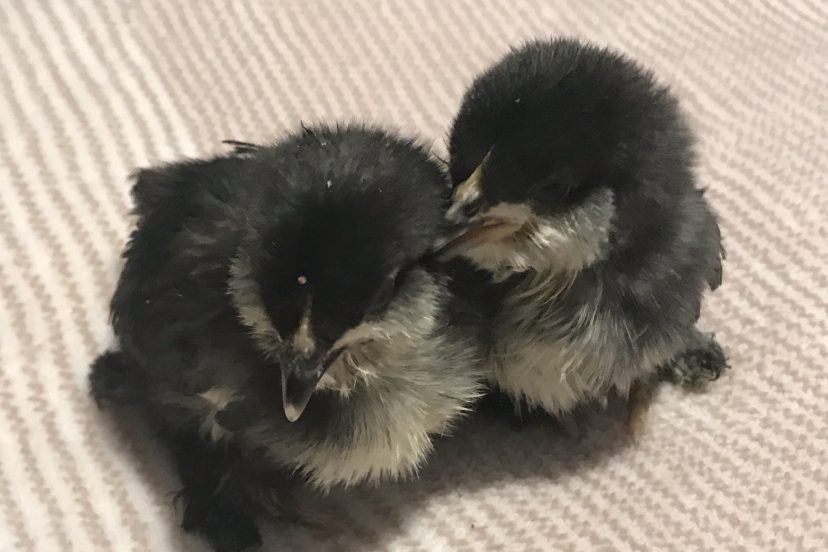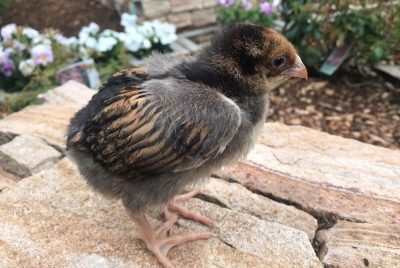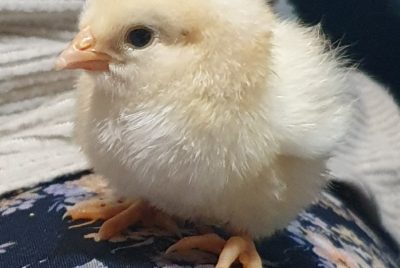Prevent Pasty Butt – Top Tips for Keeping Your Chicks Clean!
It’s crucial to ensure the health and well-being of your baby chicks to prevent pasty butt. This common condition can be dangerous and even fatal if not addressed promptly. In this blog post, I’ll share top tips on how to keep your chicks clean and healthy. By following these simple guidelines, you can protect your feathered friends and set them up for a happy and thriving life on your farm.
Key Takeaways:
- Regularly clean brooder: It is imperative to keep the brooder clean to prevent the buildup of feces that can lead to pasty butt in chicks.
- Monitor chicks closely: Keep a close eye on your chicks to catch any signs of pasty butt early on. Regularly inspect them to ensure their vents are clean and free of blockages.
- Adjust diet: Ensure chicks are getting the right balance of nutrients in their feed to promote healthy digestion and prevent pasty butt. Avoid giving them overly rich or sugary treats.
- Provide access to clean water: Chicks need access to fresh, clean water at all times to help keep their digestive system functioning properly. Dehydration can contribute to pasty butt.
- Seek veterinary advice if needed: If you notice persistent issues with pasty butt despite your best efforts, seek advice from a veterinarian who can provide guidance on potential underlying health issues or treatments.
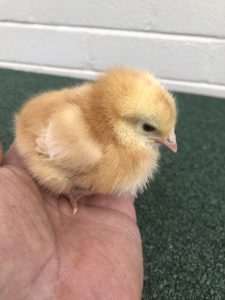
Identifying the Problem
What is Pasty Butt?
The first step in preventing pasty butt in chicks is understanding what it is. Pasty butt is a condition where feces stick to the downy feathers surrounding a chick’s vent, effectively blocking the chick’s ability to excrete waste properly. This condition can be dangerous and even deadly if not identified and treated promptly.
Why is it a Concern for Chickens?
Any poultry owner can tell you that pasty butt is no joke. It may seem like a minor inconvenience, but in reality, it can lead to serious health issues for your chicks. If left untreated, pasty butt can cause discomfort, infection, and even death in extreme cases. Prevention and early detection are key to keeping your chicks healthy and happy.
A lack of proper waste elimination can lead to a buildup of toxins in the chick’s body, which can weaken their immune system and make them more susceptible to illnesses. Additionally, a chick with pasty butt may struggle to eat and drink properly, leading to dehydration and malnourishment. As a responsible poultry owner, it’s crucial to monitor your chicks regularly for any signs of pasty butt and take immediate action if you notice any symptoms.
Causes of Pasty Butt
Poor Ventilation in the Coop
Now, poor ventilation in the coop is a common cause of pasty butt in chicks. Without proper air circulation, the ammonia from their droppings can build up, leading to skin irritation and diarrhea. Ensure your coop has enough windows or vents to let fresh air flow through and keep the environment healthy for your chicks.
Inadequate Cleaning Schedule
On inadequate cleaning schedule is another factor that can contribute to pasty butt in chicks. If you’re not cleaning the coop regularly, feces can accumulate, creating a breeding ground for bacteria that can lead to infections. The droppings can also stick to the chicks’ feathers, causing blockages and pasty butt.
The key here is to establish a regular cleaning routine. Make sure to remove soiled bedding, clean the coop, and replace with fresh bedding frequently. This will help prevent any build-up of waste that could result in health issues for your chicks.
Insufficient Space for Chickens
Another cause of pasty butt in chicks can be attributed to insufficient space in the coop. With limited room to move around, chicks can become stressed and anxious, leading to health problems like pasty butt. Make sure your coop has enough space for all the chickens to move freely, stretch their wings, and engage in natural behaviors.
With adequate space, your chicks will be happier, healthier, and less likely to develop pasty butt or other health issues.
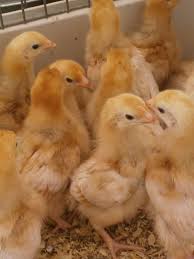
Signs and Symptoms
Despite our best efforts, sometimes chicks can still develop pasty butt. It’s important to stay vigilant and be on the lookout for signs and symptoms that your chicks may be experiencing discomfort.
Visible Paste or Stains
Symptoms: One of the most obvious signs of pasty butt is the presence of visible paste or stains around the chick’s vent area. This can indicate a blockage and should be addressed promptly to prevent further complications.
Irritation and Discomfort
To: Another common sign of pasty butt is when a chick appears to be in discomfort or is constantly pecking or scratching at its vent area. This irritation can lead to further complications if not addressed, so it’s important to take action as soon as possible.
Plus: Ignoring signs of irritation and discomfort can not only lead to further complications for the chick but can also impact the overall health and well-being of your flock. It’s necessary to address any issues promptly to ensure the happiness and health of your chicks.
Increased Risk of Infection
Any: In addition to visible signs of pasty butt, chicks experiencing this condition are at an increased risk of developing infections. The blockage can create a breeding ground for harmful bacteria, leading to more serious health issues if left untreated.
Infection: It’s crucial to monitor your chicks closely and take immediate action if you suspect any signs of infection. **Seeking veterinary care** may be necessary to treat the infection effectively and prevent it from spreading to the rest of your flock.

Top Tips for Prevention
All chicken owners should take preventive measures to avoid issues like pasty butt. Here are some top tips to help you keep your chicks healthy and clean!
Regular Cleaning and Disinfection
On a regular basis, clean the brooder and coop thoroughly to prevent the buildup of droppings and bacteria. Use a safe disinfectant recommended for poultry areas. Additionally, keep bedding dry and change it regularly to maintain a clean environment for your chicks.
Improving Ventilation and Air Quality
Tips: Ensure proper ventilation in your coop by providing adequate airflow. Good ventilation helps remove excess moisture and ammonia fumes that can contribute to pasty butt. Consider installing vents or windows to improve air circulation in the coop.
Another important aspect of improving air quality is to keep the coop clean and dry. Moisture in the bedding can lead to unhealthy air quality and increase the risk of health issues for your chicks.
Providing Adequate Space and Exercise
Cleaning: Ensure your chicks have enough space to move around and exercise in the coop. For instance, overcrowding can lead to stress and health problems, including pasty butt. Providing adequate space will help keep your chicks active and healthy.
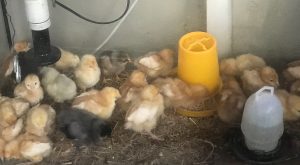
Effective Cleaning Methods
Removing Soiled Bedding
One of the most crucial steps in preventing pasty butt is to regularly remove soiled bedding from the chick’s living area. Wet bedding can contribute to the accumulation of bacteria and increase the likelihood of pasty butt developing. By keeping the bedding clean and dry, you can help maintain a healthy environment for your chicks to thrive.
Disinfecting Feeders and Waterers
Effective cleaning of feeders and waterers is imperative in preventing the spread of bacteria and diseases among your chicks. **Regularly disinfecting** these imperative items can help ensure that your chicks have access to clean food and water, reducing the risk of infections.
To disinfect feeders and waterers, you can use a mild bleach solution or a commercial poultry-safe disinfectant. **Make sure to thoroughly rinse** the items after disinfection to remove any remaining chemical residue that could be harmful to your chicks.
Cleaning the Coop Walls and Floor
Cleaning the coop walls and floor is an important part of **maintaining a sanitary environment** for your chicks. **Regularly removing** any build-up of dirt, droppings, and other debris can help prevent the spread of harmful bacteria and parasites that can cause health issues for your flock.
**To clean** the coop walls and floor, you can use a scrub brush or pressure washer along with a poultry-safe cleaning solution. **Make sure to** thoroughly rinse and dry the surfaces after cleaning to prevent any moisture build-up, which can attract bacteria and mold.
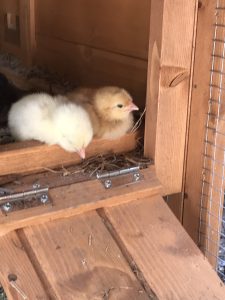
Additional Tips for a Healthy Flock
Your chickens are like any other pets – they need attention, care, and regular monitoring to ensure they stay healthy and happy. Here are some additional tips to keep your flock in top shape:
Monitoring Chicken Health
Health monitoring is vital when raising chickens. Regularly check your flock for any signs of illness or distress. Look out for symptoms such as decreased egg production, lethargy, abnormal droppings, or changes in behavior. If you notice anything unusual, consult with a veterinarian experienced in poultry health. Assume that early detection and treatment are crucial to preventing the spread of disease within your flock.
Providing a Balanced Diet
Balanced nutrition is key to keeping your chickens healthy and preventing issues like pasty butt. Ensure your flock has access to a complete feed specially formulated for their age and needs. Supplement their diet with fresh fruits and vegetables, and occasional treats like mealworms or scratch grains. Assume that a varied diet will help maintain optimal health and egg production in your flock.
Healthy chickens need a good balance of protein, carbohydrates, fats, vitamins, and minerals in their diet. Providing the right nutrients will support their immune system, feather quality, and overall well-being.
Ensuring Access to Fresh Water
Ensuring access to fresh, clean water is necessary for your chickens’ health. Chickens need constant access to water to stay hydrated, regulate their body temperature, and aid in digestion. Understanding that chickens can consume a surprising amount of water, especially during hot weather or laying periods, is crucial for their well-being. Make sure to regularly clean and refill their water containers to prevent contamination and algae growth.
Conclusion on Prevent Pasty Butt
Drawing together the important information from this article, I hope you feel more confident in preventing pasty butt in your chicks. Note, keeping their brooder clean, providing the right temperature, and ensuring they have access to clean water are key factors in keeping your chicks healthy. By following these top tips, you can help your chicks thrive and avoid issues like pasty butt.
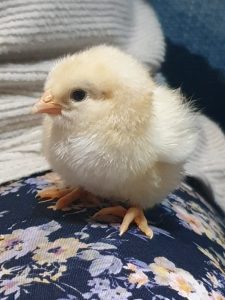
FAQ’s about how to Prevent Pasty Butt
Q: What is pasty butt in chicks?
A: Pasty butt in chicks is a condition where droppings stick to the chick’s vent, blocking it and potentially causing health issues or even death if not treated promptly.
Q: How common is pasty butt in chicks?
A: Pasty butt is a common issue in baby chicks, especially during their first few weeks of life when they are most vulnerable.
Q: What are the top tips for preventing pasty butt in chicks?
A: Some top tips for preventing pasty butt in chicks include keeping their bedding clean and dry, ensuring they have access to fresh water at all times, and providing them with a balanced diet.
Q: How do you treat pasty butt in chicks?
A: To treat pasty butt in chicks, gently clean the affected area with warm water and a soft cloth, being careful not to pull on the chick’s down feathers. You may also need to trim any dirty or matted feathers around the vent.
Q: When should I seek veterinary care for a chick with pasty butt?
A: If a chick’s pasty butt does not improve with at-home treatment, or if the chick appears lethargic, in pain, or is not eating or drinking, it is important to seek veterinary care immediately to prevent any further complications.
You Might Also Enjoy these Articles
Raising Baby Chicks On A Budget
Mastering Pasty Butt Cleaning – Keep You chicks Happy and healthy
Unlock the Secrets to Raising Chicks Like A Pro
How to Choose The Best Heat Source for Baby Chicks
Find Out the Perfect Time to Sell Your Baby CHicks

